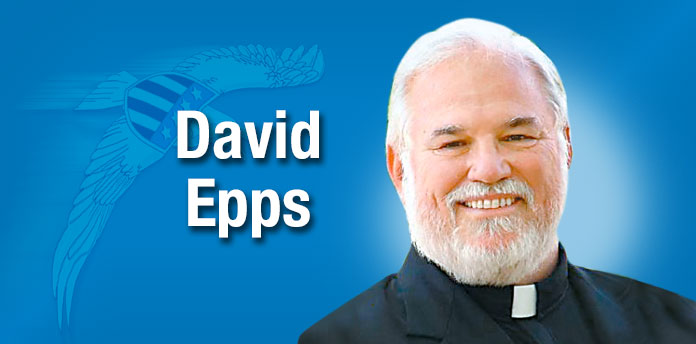Perhaps it’s been as long ago as the War Between the States since Americans were so pitted against each other. Then, the issues were huge. Today it appears that it doesn’t have to be a large issue to provoke people into incivility. A great many people are yelling with very few doing any actual listening.
Social media has certainly emboldened people who like to do their sniping from the comfort of anonymity behind a computer screen in the safety of their bedrooms.
The issues? Pick one: the pandemic, masks, Afghanistan, religion, vaccines, race, monuments, flags, government spending, taxes, politics, and the list goes on ad infinitum. And one doesn’t even have to be knowledgeable to fire their ammunition. It’s enough just to have an opinion and facts are irrelevant.
Very often these comments include profanity, character assassination, epithets, and some even refer to those who take an opposing view as Nazis, fascists, racists, and more. I suspect that some who use these words don’t even know what they mean but — never mind — accuracy doesn’t matter much anymore.
The sad thing is that the people who are doing the most screaming are not bothering to listen. And listening is how we learn. Several years ago, I met a man who was a dyed in the wool leftist Progressive. He was the husband of a friend and colleague of my wife, so our paths crossed several times. I wrote him off as someone to the left of Michael Moore. I am certain he wrote me off as somewhere to the right of Rush Limbaugh. I don’t think we cared very much for each other.
One day my wife told me that she and her friend were working on a trip to a small Mexican village on the Pacific Ocean and the two couples would vacation together. I said something like, “You must be on dope!” I had no intention of spending a week with this man. Of course. I lost the argument and we headed off to Mexico several months later. I decided that I wasn’t going to argue with this man or get into any discussions at all. I think he probably decided to endure the week as well.
The second night in the house we were renting, we talked about the wars in the Middle East. He said he thought President George W. Bush made a mistake invading Iraq.
I responded, “You know, I know you think I’m going to disagree with you but I’m going to surprise you. I think it was a mistake as well.”
We spent about an hour discussing why we thought it was a mistake and then found that we agreed that going into Afghanistan to eradicate the terror training camps was right. Suddenly, we had come to common ground and were enjoying the exchange. The rest of the week turned out to be one of the best vacations ever.
We were different in many respects of course. He was an atheist (although I think he was really an agnostic) and I was a Christian priest and pastor. He was a Progressive and I was a Conservative on most issues. Yet, we got along. More than that, we became friends. We could disagree over an issue and still go out to dinner together with our wives and have a great time. I came to truly appreciate him and I think he felt the same.
Over the course of a few years, we would go on two more vacations together, one to the mountains of North Carolina and the other to Florida. We discussed capitalism, socialism, the economy, various political figures, our children and their struggles, and even religion. We very often disagreed but we kept being friends. He gave me an insight into the mind of the Left and he received why I, a moderate that leans to the right, thought the way I did.
He had a medical condition, and, in time, it worsened. We kept in touch, and, in the final stages of his life, he asked me if I would come see him. I immediately made the trip to his town about 50 miles away and spent several hours with him. The conversations we had were private and will never be shared. I prayed for him before I left. On the way home I grieved and shed tears. Before long, he died.
I was asked to deliver the sermon at his funeral held in an Episcopal church. He was prominent in his community, so the church was full. I did not step into the pulpit as a priest, which is what I usually do. I was there as a friend to speak good things about a man I had come to respect and to love. I miss him still.
While he and I agreed on very little, my life was impacted and enriched by this friend. I hope he found the relationship beneficial as well. How we came to that point in our lives was by, at first, toleration and then listening. I mean really listening to the other person’s point of view before forming a response.
Somehow in this country we have come to the point that, if someone disagrees with us, they are now the enemy. And what we do with enemies is to attack, demean, neutralize, and destroy them.
It takes character and courage to sit with someone on the opposing side of whatever the issue is and try to understand why they think and feel as they do. It’s much easier to be a coward and fling insults, accusations, and profanity at someone on the internet while hiding in the security of our bedroom in anonymity.
When we take this approach, we lose any influence we may have had, and we lose credibility if we come across as just another slinger of mud. In other words, people ignore anything we have to say. We just become one more loud, strident, and vicious voice. Which is partly why we are where we are in this country.
I sat recently with another man I have known all his life. I respect him and love him and his family. He, too, is a Progressive and we don’t have the same opinion on a number of issues. But for several hours we talked about issues that were controversial. I don’t think either of us radically changed the opinion of the other but, at least, I understood where he was coming from and why he feels and believes the way he does. I don’t want either of us to feel that we have to keep our guard up and view the other as a combatant in the arena.
In my early adult years following college, I worked in child protective services for a state agency. Often, I would be in court and watch two lawyers passionately battling it out. One day, during a break, I went to a local restaurant near the courthouse and saw that these two men who had been fighting each other that morning were having lunch together. They walked back to the court together after lunch smiling and laughing. In the second half of the day, they fought like two boxers.
I asked one of the attorneys about what seemed to me to be strange behavior and he replied, “We’re good friends. We are often on opposite sides and we each try to do our duties and we both try to win our cases. But there’s no reason why we can’t be on opposite sides and still be friends.”
The last time people were so hostile toward each other, and communication broke down, we had a great war on our own soil that resulted in 700,000 dead and the near total destruction of an entire region of the nation. Some of the hostility that resulted from that conflict can still be seen 161 years later.
I only hope it’s not too late to have civil discourse between people who disagree on the issues. We must be willing to present our arguments or positions with make the other person our enemy. We must respect someone’s right to an opinion even if it disagrees with ours. We must be willing to listen to what the other side believes and why they believe the way they do. We can keep the passion, but we must cast off the rancor and the anger. We’ve already had one civil war. It is doubtful we could survive another.
[David Epps is the Rector of the Cathedral of Christ the King (www.ctk.life). During the pandemic, the church is open at 10:00 a.m. on Sundays but is also live streaming at www.ctk.life. He is the bishop of the Diocese of the Mid-South (www.midsouthdiocese.life) He may contacted at [email protected].]













Leave a Comment
You must be logged in to post a comment.